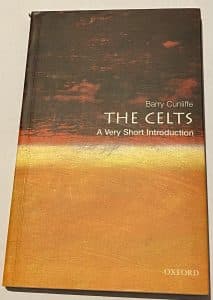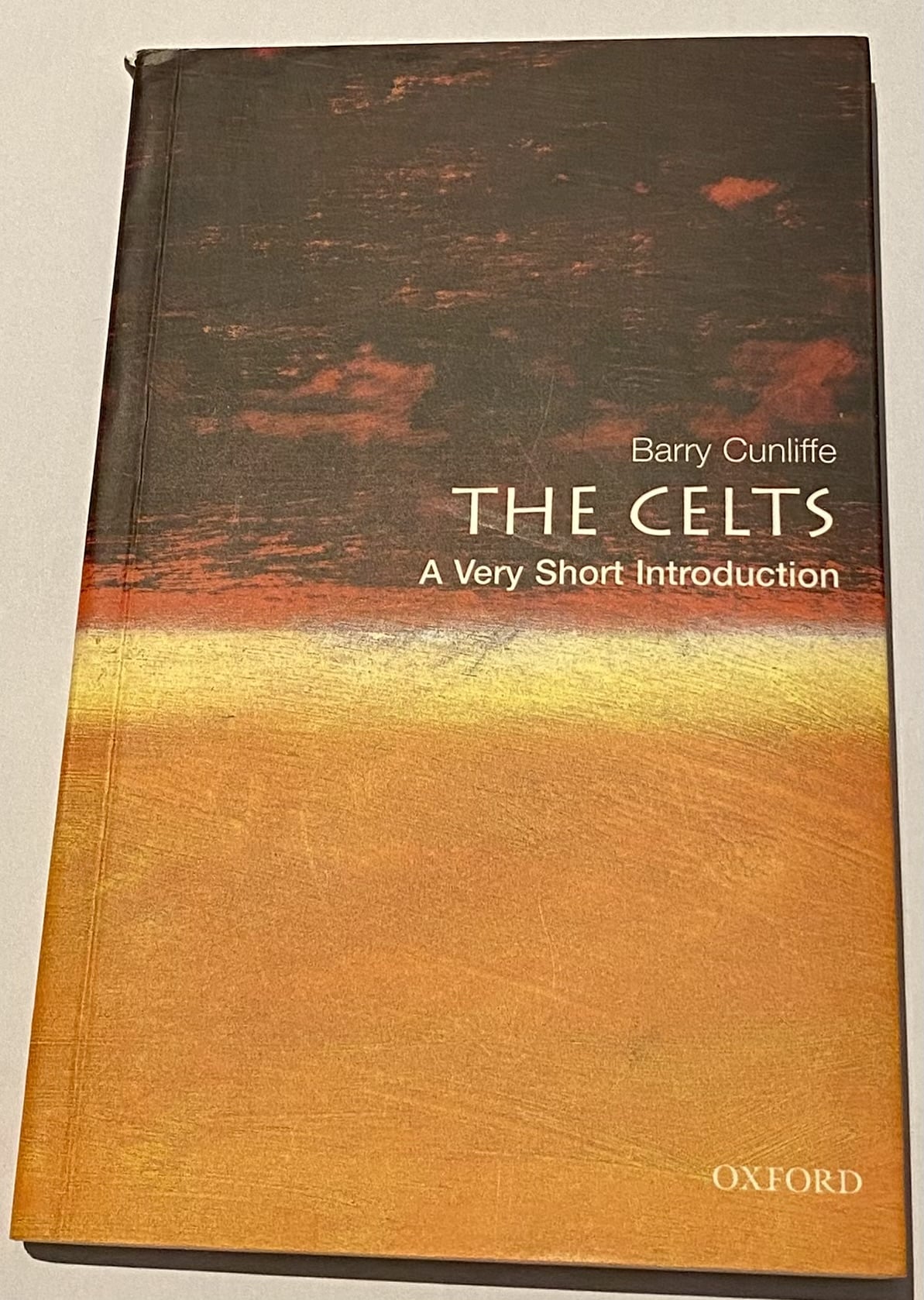Some historians are born academics, their work is thorough, detailed, and completely incomprehensible. But there are a rare few, of whom we will have all heard of (e.g. Tom Holland, Anthony Beevor), who manage to bridge that great divide, turning facts into narrative, bringing history to life through a colourful string of characters. Barry Cunliffe’s book on The Celts is somewhere in between: neither dry academic tome, nor mainstream bestseller historical narrative. Instead, it is a concise, yet detailed, overview of academic research, with a clear application to our contemporary culture and interpretations.
Summary: The book begins with a clever introduction setting out the wide range of interpretations of the word ‘Celt’ and how it conjures up an almost meaningless list of flawed impressions. Cunliffe explains how these are, more often than not, based on socio-cultural distortions developed throughout the past and present (of which I am probably guilty too). This is an interesting challenge and sets the scene for the rest of the book.
The remaining chapters take us through various ‘views’ of the Celts, setting these in context to help understand why there’s so much disagreement on the subject. Short sections cover celtic values, communication, trade, and identity. The final sections consider contemporary narratives of celtic identity placing these within the context of academic research.
My view: If you are looking for a semi-academic overview of the Celtic people to understand who or what they were, this is a fantastic starting point. It’s concise, clear and extremely well researched (as you’d expect). For me, I made the mistake – one that Cunliffe’s clearly calls out – of hoping to discover what history tells us about the Irish Celts. Cunliffe does make many allusions to such a people, but these are so heavily caveated and qualified I am left feeling a little deflated. He takes a forensic look at what we can know about a people termed the Celts, but he makes it clear that there are many local particularities between regions that make generalisations difficult, if not problematic. And I think that’s the point and indeed a good one to take on board. For the Celtic identity has been subject to such manipulation and political distortion, we are often left with a bad taste in our mouths. Cunliffe’s analysis goes a long way to address this and it will certainly inform my wider writing, but I am just grateful and that fiction can truly be fiction. I will leave the history to people much better suited to it like Prof Cunliffe!
Author: Cunliffe is almost certainly the most acclaimed scholar on the Celts. This is particularly clear when reading other academic work, all of which appears to take Cunliffe’s scholarship as their starting point; his research acts as the reference point from others depart. That alone makes such a book a great resource for anyone interested in the subject.
Favourite quote: “So from New Age body decoration to concerns for the survival of regional identity, from half-baked attempts at political manipulation to an inspiration for new music, the Celtic spectre hovers while the Celtic spectre is held aloft. Celticness does indeed seem to be all things to all men.”
Favourite fact: The term Celt derives from the Greek Keltoi which was a generic term used to refer to “disparate northern barbarians they encountered” and was most likely just a loosely employed term – much like ‘American’ today.
Book specification: 145 Pages, 16 chapters, published in 2003.
Available here on: Amazon £7.99 but also plenty of second-hand versions from £3+
For more of my posts please see here or to follow me on Twitter see here

